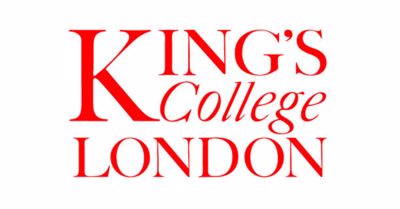Advancing in Academia - Career Planning and Thinking for PGRs and Research Staff
'Advancing in Academia' at King’s College London (KCL) is a four-week blended learning course for PGRs (doctoral researchers) and Research Staff who are considering or planning a career in academia. The course is designed and run in partnership with the researcher careers team at KCL and the College Centre for Doctoral Studies. The most recent version, in 2022, was run for people with dual academic and clinical careers. The course has run since 2017 focussing on different academic disciplines each time, and in 2022 it focussed specifically on clinical academics. Although the general principles described below apply to all iterations, the course run in 2022 represented the most challenging and also the most rewarding.

What kind of an organisation are you in the context of the Concordat?
Research-intensive university
What challenge were you trying to address with this initiative?
We sought to help researchers who are also pursuing a clinical career think and plan effectively for the academic part of their career. We wanted to help people be better informed about the possible labour market, the challenges of dual careers and the equality issues arising from them (as the current demographic profile is mostly white and male, especially at senior levels). In addition, we wanted to equip participants with career thinking and management skills that they could always rely on.
What did you do and how does this align with the Principles and keywords you have selected below?
We set up a four-week blended learning course with a mixture of synchronous and asynchronous learning. Each week had a theme looking at whether academia is the right choice; planning an academic career; writing excellent academic job applications; and a final session on summarising the course and looking at any open issues not already covered.
Each week included a live webinar with one or more academic guests, where participants heard directly from people navigating academic careers, posed questions and shared their own experiences. The webinars were recorded and posted on the course pages for anyone who missed them. The asynchronous materials were studied in participants' own time and they were encouraged to reflect on what they discovered and answer some reflective questions to help them embed their learning. The materials included information resources (such as labour market data on UK higher education) and video interviews with academics reflecting on their professional experiences.
What were the challenges in implementation and how did you resolve them?
The main challenge is that there is no single path to- or through an academic/clinical career and that, very often, people have to improvise and be very opportunistic. To overcome this, we focused on teaching career management and research skills rather than telling people what to do or just signposting resources. Everyone's career plan would be different but the underlying processes would be similar and we felt this was a way to bring a professionally diverse group together.
How did you evaluate the impact of your initiative?
Evaluation was performed by:
- monitoring attendance at the weekly webinars;
- through the engagement with- and content added to the weekly reflective Padlet;
- and through an evaluation survey at the end of the course which attempted to measure the changes in career thinking that had taken place.
Were there any surprising or unexpected consequences?
Compared to other academic research-based careers, clinical academia is less focused on the traditional metrics of publications and conference attendance. As there is no single career path, senior colleagues are very open to applicants being imaginative and entrepreneurial about their careers and are willing to listen to a good pitch. While all the academics we interviewed said that their time was constantly in demand (because of having, essentially, two full time roles), all said that the two halves of their lives were complimentary and integral to each other.
What advice would you give others wanting to do this?
The planning and preparation takes much longer than you expect. You have to write materials, set up video interviews, organise webinars, edit video and create a course on a virtual learning environment. Start about 9 months before you deliver it as you will need this much time.
Beneficiaries: Research staff Postgraduate researchers Research and teaching staff Clinicians Managers of researchers
Stakeholders: Researchers Managers of researchers Professional staff
Concordat principles: Employment Professional and career development
Keywords: Training Professional development Research identity Research culture Career progression Equality, diversity and inclusion Career management Diverse careers Clinical
